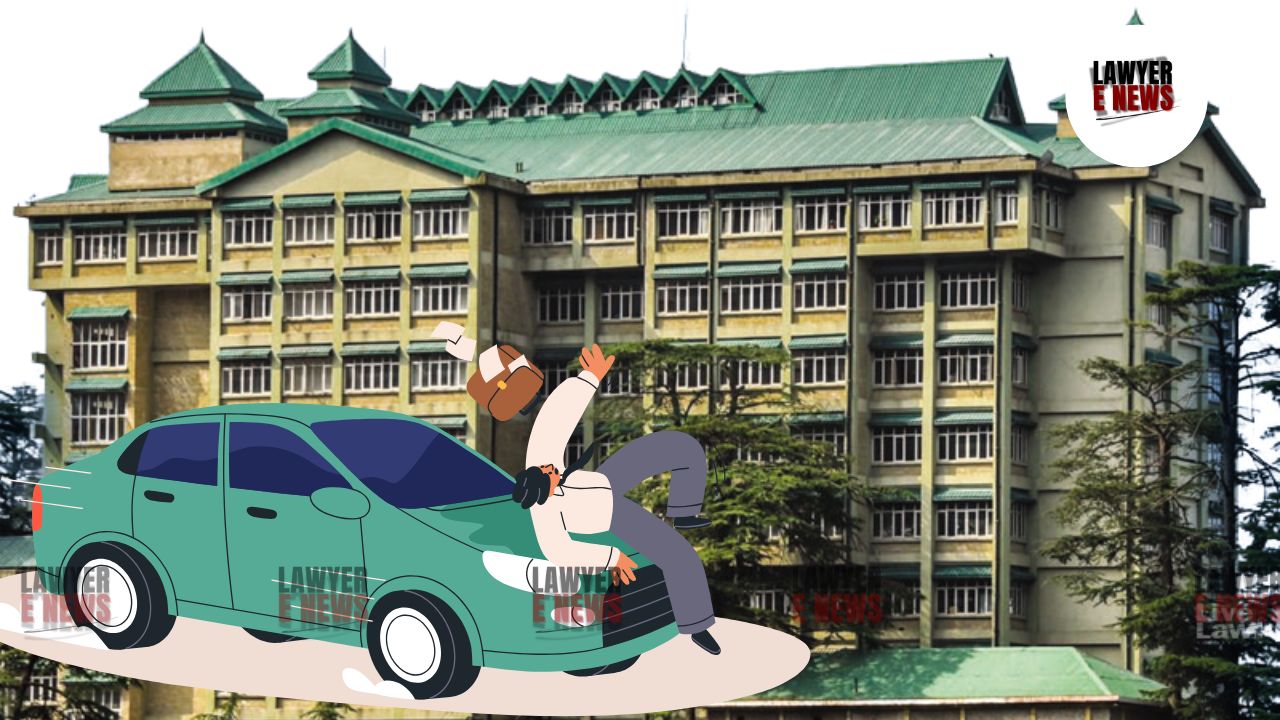-
by Admin
15 February 2026 5:35 AM



In a significant Judgement, Himachal Pradesh High Court dismissed an appeal by the State of Himachal Pradesh challenging the acquittal of a truck driver, Karnail Singh, who had been charged with causing the death of a bicyclist due to alleged rash and negligent driving. The appeal, which stemmed from a tragic accident that occurred in June 2005, was rejected by the court, which held that the driver could not be deemed negligent given the circumstances of the case.
The respondent, Karnail Singh, had been convicted by the Judicial Magistrate First Class, Nalagarh, for offenses under Sections 279 (rash driving) and 304-A (causing death by negligence) of the Indian Penal Code (IPC). Singh was sentenced to three months’ rigorous imprisonment and a fine of ₹500 for the Section 279 conviction, and one year’s rigorous imprisonment with a fine of ₹1,000 under Section 304-A.
The case arose from an incident on June 13, 2005, when Singh was driving a tipper truck along the Nalagarh-Baddi road. A bicyclist, Jai Ram, and his co-worker, Subhash Chand, were on the road, with Jai Ram signaling to turn at a road junction. The truck allegedly failed to notice the turn signal and collided with Jai Ram, causing him fatal injuries.
After his conviction, Singh appealed the decision before the Additional Sessions Judge, Solan. The appellate court overturned the trial court’s conviction, holding that the accident occurred on a busy national highway, and Jai Ram had been negligent in crossing the road at the junction without sufficient caution. This acquittal led to the State’s appeal before the Himachal Pradesh High Court.
The State, represented by Deputy Advocate General Ms. Ayushi Negi, argued that the appellate court had failed to appreciate the evidence properly. The prosecution contended that Subhash Chand, an eyewitness, had clearly stated that he and the deceased had signaled their intention to turn, and the truck driver was negligent in failing to stop. It was submitted that the driver’s failure to slow down and stop constituted rash and negligent driving, warranting the conviction upheld by the trial court.
Justice Rakesh Kainthla, presiding over the case, reviewed the evidence and the legal principles governing the matter. The court emphasized that under Rule 8 of the Rules of the Road Regulation, 1989, drivers are required to slow down when approaching road junctions to ensure the safety of other road users. However, the court also noted that both drivers and bicyclists share a responsibility to exercise caution at such junctions.
The court found that the evidence, including photographs showing skid marks, indicated that the driver had attempted to stop the truck but was unable to avoid the collision. The court noted that the accident occurred on a busy national highway, where traffic flows are typically fast, and it would have been easier for the bicyclist to exercise caution than for the truck to stop suddenly.
Referring to Supreme Court precedent, the court observed, "If a person suddenly crosses the road, the driver may not be able to avoid the accident, even if driving carefully. The driver cannot always be held liable for such an accident." Citing Mahadeo Hari Lokre vs. State of Maharashtra (1972), the court affirmed that when pedestrians or bicyclists enter a road or junction unexpectedly, the driver’s ability to avoid a collision can be limited.
The court also underscored that appellate courts should not interfere with an acquittal unless the findings are manifestly perverse or unreasonable. Given that the appellate court had taken a plausible view of the evidence, the High Court found no reason to overturn the acquittal. The court concluded, "The view taken by the learned First Appellate Court is a reasonable one, supported by the evidence on record, and no interference is warranted."
The appeal by the State was dismissed, and the acquittal of Karnail Singh was upheld. The court ruled that the bicyclist, Jai Ram, had contributed to the accident by not exercising adequate caution when entering the road junction, and the driver’s actions did not amount to rash and negligent driving under the IPC.
Date of Decision: October 21, 2024
State of Himachal Pradesh v. Karnail Singh
